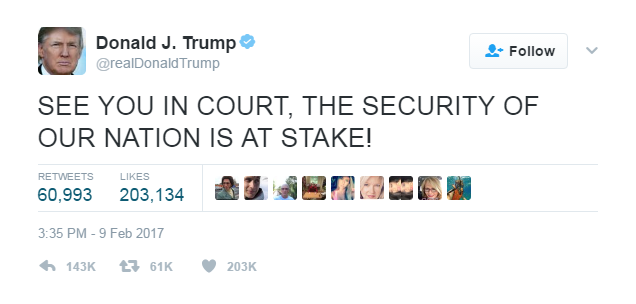As a result of the Russian government’s personnel cap imposed on the U.S. Mission, all nonimmigrant visa (NIV) operations across Russia will be suspended beginning August 23, 2017. Visa operations will resume on a greatly reduced scale. Beginning September 1, nonimmigrant visa interviews will be conducted only at the U.S. Embassy in Moscow. NIV interviews at the U.S. Consulates in St. Petersburg, Yekaterinburg, and Vladivostok are suspended until further notice. As of 0900 Moscow time Monday, August 21, the U.S. Mission will begin canceling current nonimmigrant visa appointments countrywide. The NIV applicants who have their interviews canceled should call the number below to reschedule their interview at the U.S. Embassy in Moscow for a later date. NIV applicants originally scheduled for an interview at the U.S. consulates in St. Petersburg, Yekaterinburg, and Vladivostok should call the number below if they wish to reschedule their interviews at the U.S. Embassy in Moscow.
The staffing changes will also affect the scheduling of some immigrant visa applicants. Affected applicants will be contacted if there is a change as to the time and date of their interview.
For rescheduling of nonimmigrant visa interviews and other questions, contact: +7 (495) 745 3388 or 8 800 100 2554 (ITFN).
The U.S. Embassy in Moscow and three consulates will continue to provide emergency and routine services to American citizens, although hours may change. (For American Citizen Services hours, please check the U.S. Mission to Russia website at https://ru.usembassy.gov/u-s-citizen-services/acs-hours.)
The U.S. Embassy in Moscow and the U.S. Consulate in St. Petersburg will no longer accept new visa applications for residents of Belarus. We will reschedule NIV appointments for Belarussian applicants who have already paid the application fee. We encourage residents of Belarus to schedule NIV appointments at the U.S. Embassy in Warsaw; the U.S. Embassy in Kyiv; or the U.S. Embassy in Vilnius.
Q: Will my nonimmigrant visa appointment be canceled? How will I be informed?
A: Beginning at 0900 Moscow time Monday, August 21, we will begin canceling all current nonimmigrant visa appointments countrywide. Affected applicants will receive an email with a phone number to call to reschedule their interview at the U.S. Embassy in Moscow for a later date. Capacity for interviews in the future will be greatly reduced because we have had to greatly reduce our staffing levels to comply with the Russian government’s requirement.
Q: Will you still offer visa appointments at your consulates in St. Petersburg, Vladivostok, and Yekaterinburg?
A: Because of the required drawdown of personnel, all nonimmigrant visa interviews countrywide will now be conducted at the U.S. Embassy in Moscow.
Q: How will you prioritize visa appointment requests?
A: We must give first priority to the travel of officials to the UN, international organizations with offices in the United States, and bilateral missions. These are generally required by international agreements, diplomatic practice, or customary international law. We will also give priority to other categories of nonimmigrant visa applications depending on our staff level, such as travel for medical or family emergencies. This could include funerals, hospitalizations, or legal proceedings. We will process other categories as staffing permits.
Q: I am a university student studying in the United States. I need to get to my university now. Will there be an appointment available to me?
A: We are planning to offer a block of visa appointments to students in early September.
Q: What if I qualify for a nonimmigrant visa without an interview?
A: The U.S. Embassy in Moscow will continue to process nonimmigrant visas without an interview for those who qualify.
Q: How long will the suspension last?
A: We will operate at reduced capacity for as long as our staffing levels are reduced.
Q: I already paid my visa fee! Can I get my money back?
A: We cannot refund fees that have been paid. However, the fee is valid for one year from the date of the payment.
Q: Can I transfer my visa fee to apply outside of Russia?
Visa fees are not transferrable outside the country in which the fee was paid. If you wish to apply outside Russia, you would need to begin a new application and pay the fee according to that location’s instructions.
Q: Why did the U.S. Embassy cancel visa interviews scheduled before September 1?
A: Planning for departures and staff reductions has already begun in order to meet the Russian government’s September 1 deadline for the reduction of personnel.
Q: I live in Belarus. Can I still apply for a visa in Russia?
A: No. We will reschedule visa appointments for Belarussian applicants who have already paid the application fee. We encourage residents of Belarus to schedule nonimmigrant visa appointments at the U.S. Embassy in Warsaw; the U.S. Embassy in Kyiv; or the U.S. Embassy in Vilnius.
Q: Why do I need an interview for a nonimmigrant visa?
A: The interview is a legal U.S. requirement that applies worldwide.
Exceptions:
Diplomats and official government travel (including UN, other international organizations, and diplomats in transit).
Renewal within same class of visa within one year of expiration (consular officer discretion – may require interview).
The exception does not apply to applicants who are applying for a different type of nonimmigrant visa. They must be interviewed.
Q: Will my immigrant visa appointment be canceled? How will I be informed?
A: The staffing changes will also affect the scheduling of a limited number of immigrant visa applications. Affected applicants will be contacted if there is a change to the time and date of their interview.
Q: What services will be available for American citizens?
A: The U.S. Embassy in Moscow and the three consulates will continue to provide the full range of American Citizen Services, including passports, reports of birth, assistance to victims of crime, emergency loans, and prison visits. For American Citizen Services hours, please check our website at: https://ru.usembassy.gov/u-s-citizen-services/acs-hours
Q: Why will the U.S. Mission to Russia continue to provide American Citizen Services?
A: The safety and security of American citizens overseas is one of our highest priorities.

